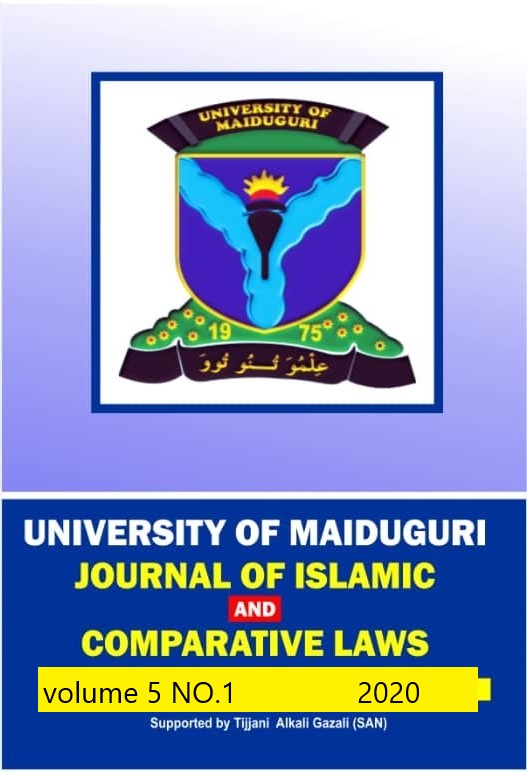The Legal Implications Of The Appeal System From Upper Shari’ah To The High Court Of Kano State Under The Nigerian Legal System
nd Dahiru Jafaru Usman PhD2
Abstract
Nigeria’s court system is hierarchical with an appeal system from
lower courts to the Supreme Court. Appeals could originate from
Shari’ah Court to the Supreme Court through the High Court. All
appeals from Upper Shari’ah Courts (USCs)except on Islamic
personal law lie to the High Court. This remains the case despite
the fact that the High Court applies principles of Common Law
and the fact that Shari’ah rules of evidence are declared alien to
the High Court. Adopting the doctrinal methodology, this paper
critiques the traffic of appeal from the Kano State USCs to the
High Court of Kano. The paper found that most High Court
Judges are not learned in Shari’ah; some are not Muslims, and the
High Court has no Shari’ah Division. The implication is that the
system allows non-Muslims and persons not learned in Islamic
law to preside over appeals on matters of pure Islamic Law.
Additionally, the paper confirms that while Sharia places weight
on the gender and religion of Judges, Common Law does not. The
involvement of female High Court Judges in the determination of
Shari’ah appeals contradicts the basic principles of Shari’ah. The
paper therefore, recommends the reorganization of the appeal
system from Kano State USCs to the High Court. The paper
further recommends amendment to Sections 233,234,244,247
and 277 of the 1999 Constitution (as amended) to allow the traffic
of appeals from USCs to the Sharia Court of Appeal on all
questions of pure Islamic Law. Alternatively, provisions be
inserted mandating the appointment of High Court judges learned
in Islamic law and/or administrative divisions to handle Shari’ah
appeals. The Legal Implications of the Appeal System from Upper Shari’ah to the High
Court of Kano under the Nigerian Legal System
There are no reviews for this Journal.
About the Journal
About
Editorial Team
Curent issues
Archive
DOWNLOADABLES
Guide for contributors
Authors Response Form
Manuscript review Form
Make a Submission

